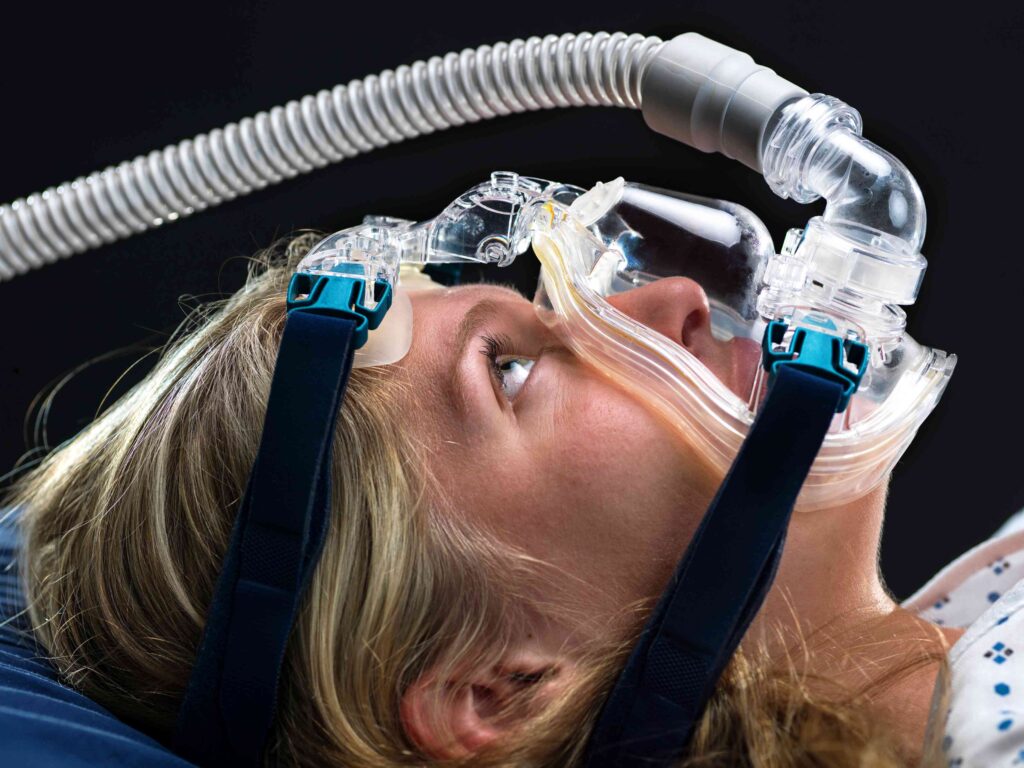Snoring might disrupt your sleep and that of your bed partner. However, if it occurs due to obstructive sleep apnea (OSA), it is a sign of a larger problem.
The condition increases your risk of developing additional health problems such as high blood pressure and diabetes. In addition, it can potentially make you less safe on the road.
Although you may not be conscious when sleep apnea occurs and, as such, not directly feel the discomfort, its is not a disorder to ignore and need to uses sleep apnea machine. Here are 11 health issues that may arise if you keep obstructive sleep apnea untreated:
1. Gaining Extra Weight
When you’re overweight, you may develop fatty deposits in your neck that prevent you from breathing at night. On the other hand, sleep apnea can cause your body to produce more of the hormone ghrelin, which causes you to crave carbs and sweets. And if you are constantly exhausted, you may not be able to convert the food you eat into energy as efficiently, which can lead to weight gain.
What’s the good news? Treatment for OSA might improve your mood and give you more energy for exercise and other activities. This can assist you in losing weight, which can help with your sleep apnea.

2. Hypertension
If you already have it, sleep apnea can exacerbate it. Your body becomes strained when you wake up frequently during the night. This causes your hormone systems to go into overdrive, raising your blood pressure. When you can’t breathe well, the oxygen level in your blood declines, which may exacerbate the condition.
However, treatment can make a difference. Some patients with high blood pressure who seek assistance for sleep apnea will improve their blood pressure. Their doctors may be able to reduce their blood pressure meds. (However, you should not discontinue or adjust your dose without first consulting your doctor.)
3. Type 2 Diabetes
Sleep apnea is frequent in persons with this disorder; up to 80% of them may have OSA. Obesity increases a person’s chances of developing both illnesses. Although studies have not shown a cause-and-effect relationship between sleep apnea and type 2 diabetes, a lack of sleep can prevent your body from efficiently utilizing insulin, leading to diabetes.
4. Cardiovascular Disease / Heart Attacks
Low oxygen levels could be the culprit. Strokes and atrial fibrillation, which is characterized by a rapid, fluttering heartbeat, are also associated with the illness.
Sleep apnea interferes with how your body absorbs oxygen, making it difficult for your brain to govern how blood flows in your arteries and the brain itself.
5. Metabolic Syndrome
This is a group of health problems that have been connected to OSA. Metabolic syndrome denotes the presence of at least three of the following conditions:
- High blood sugar levels
- Low “good” HDL cholesterol levels
- Triglyceride levels are high, which is a form of blood fat
- Too much fat around your waist
6. High Blood Pressure
Because metabolic syndrome increases your risk of developing heart disease, diabetes, or stroke, it’s critical to consult your doctor about treatment options and healthy lifestyle modifications.
Asthma in adults Although no correlation has been established, those who receive sleep apnea treatment may experience fewer asthma attacks.
7. Depression
Sleep deprivation may increase your risk of depression. Furthermore, depression may increase your chances of having a poor sleep. Talk to your doctor if you have OSA and have been feeling down for a time. They can provide treatments that will help your mood and sleep.
8. Drowsiness During the Day
Even when the sun is shining, you are exhausted. This is a common OSA symptom. It can impact everything from your mood to your ability to think clearly. Treatment for sleep apnea might enhance your sleep and make you feel less tired during the day.

9. Acid Indigestion
There is no evidence that sleep apnea causes this type of heartburn, but many people believe it does. According to sleep specialists, treating reflux improves apnea symptoms, and treating OSA improves reflux symptoms.
10. Traffic Accidents
When you’re tired, you’re more likely to fall asleep behind the wheel. Sleep apnea patients are up to five times more likely than normal sleepers to be involved in a car accident.
11. Memory loss
Some older persons have more memory lapses or cognitive issues than others their age. This is referred to the doctors as mild cognitive impairment (MCI). The symptoms aren’t as severe as those of dementia, and not everyone with MCI develops dementia.
Memory lapses from MCI may appear sooner if a person has a “sleep-disordered breathing” disease such as obstructive sleep apnea. However, treating OSA may prevent memory problems from worsening.
Sleep Apnea Treatment
The health issues associated with the illness may appear frightening, but numerous treatments are available.
Your doctor may advise you to use a CPAP machine, which stands for continuous positive airway pressure. The equipment, which includes a mask connected by a hose, can help you breathe better at night and get enough rest. It takes some getting accustomed to, but those who sleep with it feel better and are healthier.
Other treatments include mouth appliances, nerve stimulators to keep your airways open, and various forms of surgery. Consult your doctor to determine which choice is most likely to help you feel better and avoid other health issues.
Need Help?
In case you need help or some guidance about your sleep apnea problem, we are always available to help you. We will provide you with the right advice and recommendations that will help you live a stress-free life. You don’t have to struggle through the challenges alone, there are many people that have been at your current state before and they are doing very better now. All you need is to seek help from the right source.
More to read:
All You Need to Know About the ResMed Airfit F20 Series
A Simple Guide for Cleaning Your CPAP Mask and Hose
Why has LASIK Eye Surgery been so popular?

